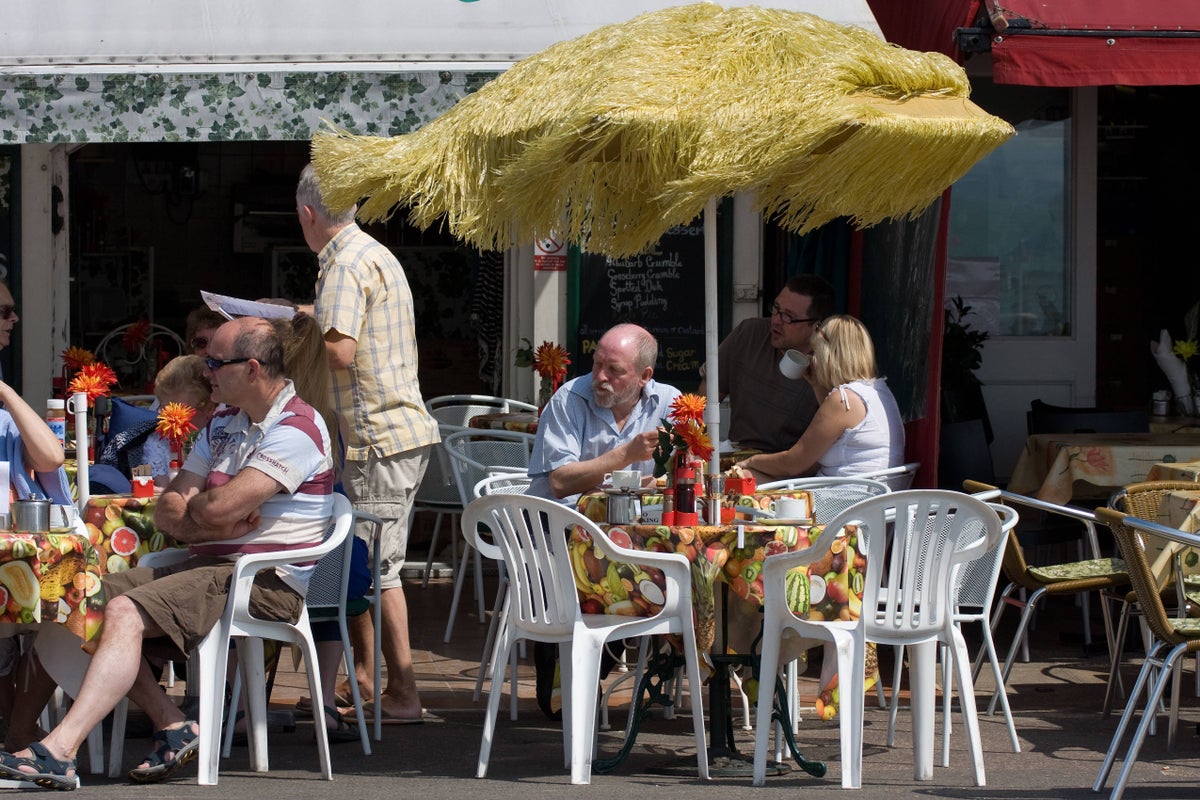
Ministers have pledged to make it easier to open new bars, music venues and cafes as part of plans to rejuvenate the high street.
Chancellor Rachel Reeves has said she wants to “protect pavement pints” as a new licensing framework will also fast-track permissions for al fresco dining in dedicated areas as the Government looks to modernise planning rules.
The Government wants to make it easier to convert disused shops into venues, and dedicated “hospitality zones” will be brought forward that could see permissions for outside dining, street parties and extended opening hours pushed through quickly.
Developers will also be made responsible for soundproofing buildings they construct near pubs or clubs, to protect existing venues from noise complaints.
The Government has said the plans will be subject to a call for evidence.
The Business Secretary has said that “red tape has stood in the way of people’s business ideas for too long”.
Jonathan Reynolds said: “This Government has a plan to replace shuttered up shops with vibrant places to socialise, turning them into thriving cafes or busy bars, which support local jobs and give people a place to get together and catch up over a beer or a coffee.
“Red tape has stood in the way of people’s business ideas for too long. Today we’re slashing those barriers to giving small business owners the freedom to flourish.”
Ms Reeves said that “pubs and bars are at the heart of British life”.
“For too long, they’ve been stifled by clunky, outdated rules. We’re binning them, to protect pavement pints, al fresco dining and street parties – not just for the summer, but all year round,” she added.
An industry body warned earlier in July that the equivalent of more than one pub per day will close across Great Britain this year, pointing to high bills and taxes.
The British Beer and Pub Association (BBPA) estimated that 378 pubs will close this year across England, Wales and Scotland, which it said would amount to more than 5,600 direct job losses.
The projected 2025 figures compare with 350 closures in 2024.
Bar chain Brewdog announced this week that it would close 10 of its venues, as chief executive James Taylor told staff it is partly in response to “rising costs, increased regulation, and economic pressures”.
Representatives of the hospitality industry welcomed the changes but said they should go hand in hand with a cut to business rates as cost pressures threaten to “tax out of existence” some businesses.
Kate Nicholls, chairwoman of UKHospitality, said: “We strongly welcome these proposals to cut red tape and make it easier to open and operate hospitality venues, create jobs and grow the economy.
“But positive and encouraging as these measures certainly are, they can’t on their own offset the immediate and mounting cost pressures facing hospitality businesses which threaten to tax out of existence the businesses and jobs that today’s announcement seeks to support.”
Emma McClarkin, chief executive of the British Beer and Pub Association, said: “After bringing together key voices in the pubs and the wider hospitality sector, it’s great news that many of the industry’s recommendations on how best to cut red-tape and support growth will be acted on.
“These changes must go hand in hand with meaningful business rates reform, mitigating staggering employment costs, and a cut in beer duty so that pubs can thrive at the heart of the community.”
Andrew Griffith MP, shadow business secretary, said: “Though any cutting of red tape for hospitality businesses is welcome, this is pure hypocrisy and inconsistency from Labour.”
He said the Government was “crippling the hospitality industry by doubling business rates, imposing a jobs tax and a full-on strangulation of employment red tape”.
“As the result, shorter opening hours, shedding jobs and expensive pints are becoming the norm.”
